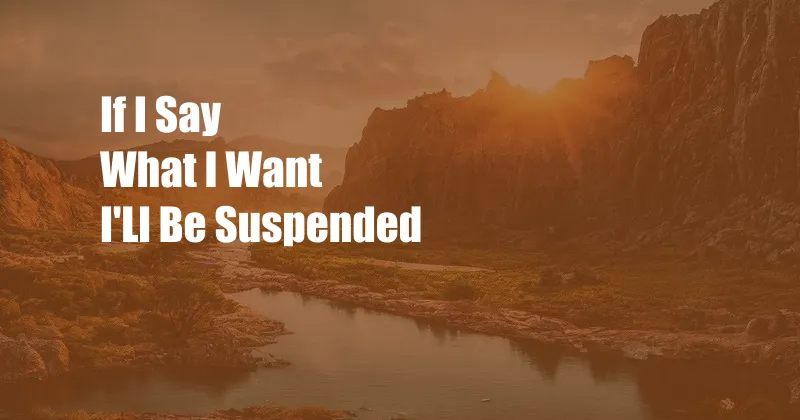
If I Say What I Want, I’ll Be Suspended: Navigating Online Censorship
In an era dominated by digital communication and social media, the boundaries of free speech have become increasingly blurred. While the internet has undoubtedly fostered unparalleled access to information and connectivity, it has also raised significant concerns over censorship and the suppression of dissenting voices.
The concept of online censorship refers to the intentional act of limiting or suppressing the expression of certain ideas, opinions, or content on digital platforms. This can take various forms, from filtering and blocking access to specific websites to removing or suspending user accounts for violating community guidelines or terms of service. The prevalence of online censorship has sparked debates over the balance between protecting freedom of expression and safeguarding individuals from harmful or offensive content.
Understanding the Scope of Online Censorship
Online censorship practices vary widely across different countries, platforms, and contexts. Governments, social media companies, and other online service providers may implement their own policies and regulations regarding acceptable content, which can lead to varying degrees of censorship.
In authoritarian regimes, online censorship is often used as a tool to suppress political dissent and control the flow of information. Governments may block access to websites and social media platforms that challenge their authority or promote alternative perspectives. In democratic societies, online censorship is typically more nuanced, focusing on protecting individuals from illegal content, such as hate speech, incitement to violence, and child sexual abuse material.
The Impact of Online Censorship
The impact of online censorship on society is complex and multifaceted. While it can be argued that censorship is necessary to protect vulnerable individuals and maintain social harmony, it can also stifle innovation, suppress dissenting voices, and undermine trust in digital platforms.
For individuals, online censorship can limit their ability to access information, express themselves freely, and engage in meaningful discussions. It can create a chilling effect on free speech, leading people to self-censor their opinions or avoid sensitive topics altogether. For society as a whole, online censorship can hinder the free flow of ideas, reduce diversity of thought, and reinforce existing power structures.
Tips for Navigating Online Censorship
As we navigate the intricate landscape of online censorship, it is important to understand our rights and responsibilities as digital citizens. Here are a few tips for navigating online censorship effectively:
**Be aware of platform policies:** Familiarize yourself with the community guidelines and terms of service of the online platforms you use. This will help you understand what types of content are considered acceptable and what may result in account suspension or removal.
**Use alternative platforms:** If you find yourself being censored or restricted on one platform, explore alternative platforms that may offer a more open and inclusive environment for expressing your views. However, it is important to always be mindful of potential risks and limitations associated with alternative platforms.
Engage in respectful discourse: When participating in online discussions, strive to engage in respectful and civil discourse. Avoid using inflammatory or offensive language, even if you disagree with someone’s views. Remember that respectful and constructive dialogue is essential for fostering healthy and productive online spaces.
Expert Advice on Online Censorship
Experts in the field of digital rights and free speech have provided valuable insights and advice on navigating online censorship:
**Evan Greer, Director of Fight for the Future:** “Censorship is a slippery slope. Once you start down that road, it’s hard to know where it will end. We need to be vigilant in defending our right to free speech, both online and offline.”
**Rob Faris, Professor of Sociology at Northeastern University:** “Online censorship can have a profound impact on political discourse. By limiting the spread of certain ideas, it can shape the way people think about the world and the choices they make.”
These expert perspectives underscore the importance of understanding the implications of online censorship and